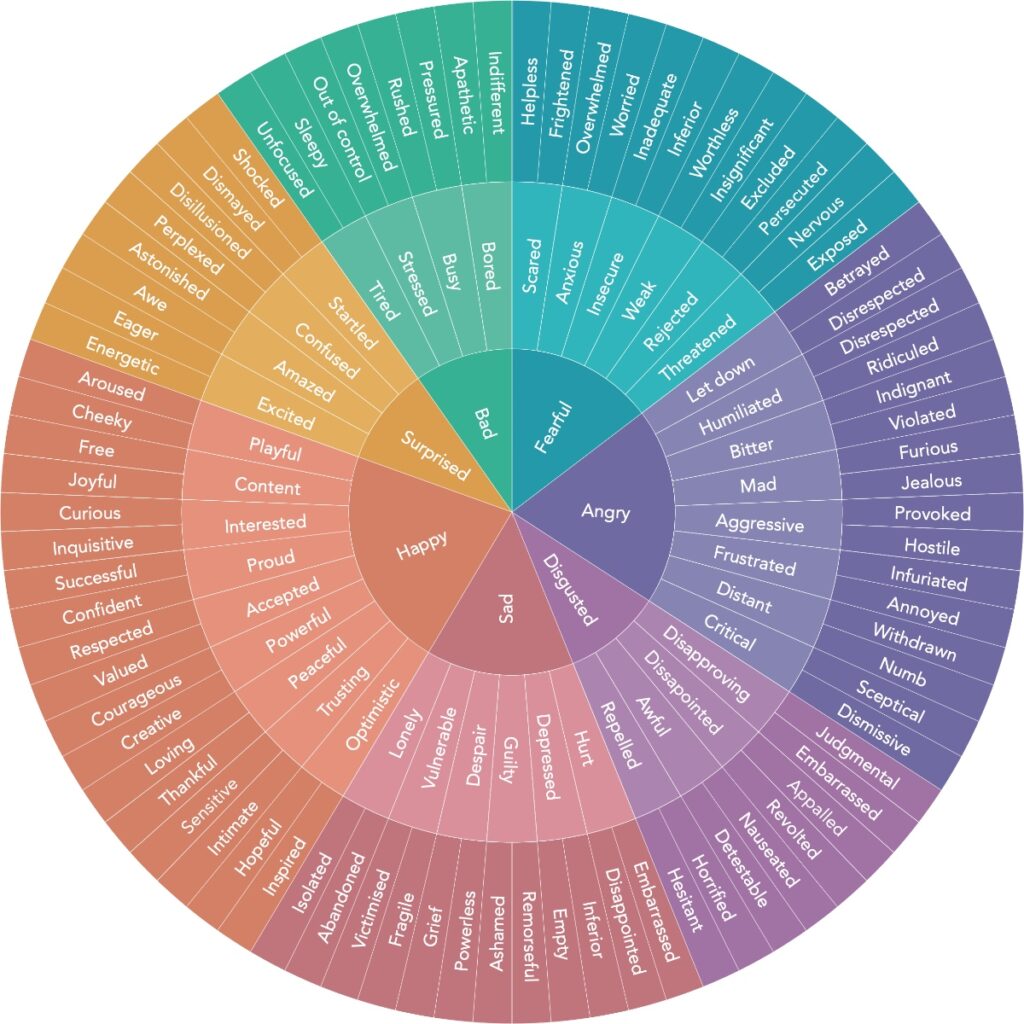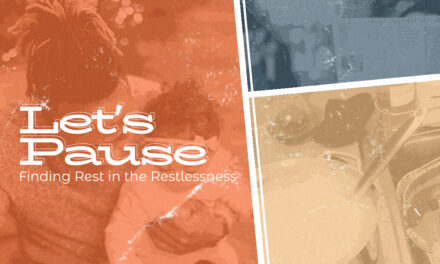An important part of spiritual reflection is being attentive to feelings and emotions. The Ignatian Examen encourages us to review our feelings as we review our day. It’s a healthy approach to something we human beings have to deal with every day. Each evening before I go to bed, I record in an app three things I was grateful for from the day. The app also prompts me, via emoji, to record the feelings I experienced that day: happy, disappointed, stressed, excited, thankful, angry… And each time I do it I’m surprised at just how many feelings I experience in a single day.
 Wisdom Within
Wisdom Within
Ignatius knew there was wisdom to be found within our feelings and examining them was a way we could examine the movements of the good and evil spirits. Feelings and emotions (which I use interchangeably here) are spontaneous mental states that arise within us, often accompanied by physical sensations, which may drive us to a certain action. It’s important to note that the wisdom in these interior sensations comes not in following all the prompts that these feelings lead us to. That can lead us to temptation, unloving actions, harsh words, and poor choices. Many of us are not very conscious of the way we move from the feeling to the action, and so we are reactive to a feeling of stress or anger, fighting against it. But when we are more “awake”, we instead exercise our free will and respond to the feelings consciously.
So how can we examine these feelings in a prayerful way?
Just as with desires and motivations, we can dig to examine the deeper and more specific feelings beneath them. One helpful tool is The Feelings Wheel which displays a central circle of basic feelings (e.g. happy, angry, sad, fearful) and expands to more and more specific manifestations of that basic feeling. For example, if during my Examen I notice that I experienced some anger I can look at the feelings wheel and discern that the anger was more specifically a feeling of bitterness toward a friend who used my car without asking. I can then dig deeper and discern that the bitterness was more specifically a feeling of being violated. Or I may think of different feelings words.
It doesn’t end there at the edge of the feelings wheel. I must be curious, not judgemental. Too often we’re quick to judge the feeling we experience and react in an unhelpful way. Curious people ask questions. Where is this sense of being violated coming from? Is there a deeper meaning? Where is it leading me? How, as a Christian, would I respond? In other words, we’re asking about the source and the destination. I know the source was the choice of my friend to use my car without asking. I might also discern that the source might be from the evil spirit because I don’t believe bitterness comes from God. But then, what is the destination? What will anger and bitterness lead me to? It can lead me back toward my ego if I choose to yell at my friend and give them the could shoulder. But I can make a choice that moves me out of my ego and toward God. Perhaps I choose to be curious and ask my friend about their reason for using my car without asking. It could have been for an emergency and perhaps they tried to reach me first. Who knows? The point here is that being curious and pausing reflectively helps me to be the one in control rather than letting the feelings and emotions control me. I may also choose to gently express my feelings to my friend. In this way we can give one another the “plus sign“, the benefit of the doubt, and listen to each other first before making judgements.
 God’s Feelings
God’s Feelings
Another helpful practice is asking if God shares my feelings about the situation. Years ago my spiritual director suggested I ask this during my Examen. He gave me a sheet with feelings words as a help, similar to the feelings wheel. This can help us determine the source of the feeling. Would God share in my bitterness? Maybe God would share in my anger or sense of violation. We can even be curious about God’s own feeling and response. How might Jesus respond to such a feeling? This is what means to be a contemplative, to bring our feelings to prayer.
Feelings are just like anything else in this world. They exist, Ignatius would say, like riches or poverty, health or sickness. All we should choose is what leads us toward God. And just like any other thing, like a possession, a talent, a job offer, or a relationship – we are called to step back and examine it. Is it leading me toward God or not? Is it giving me life or not? Can God reframe it and bring good out of it?
Be curious.
Related posts:
Listen to the podcast version of this post…



 God’s Feelings
God’s Feelings





